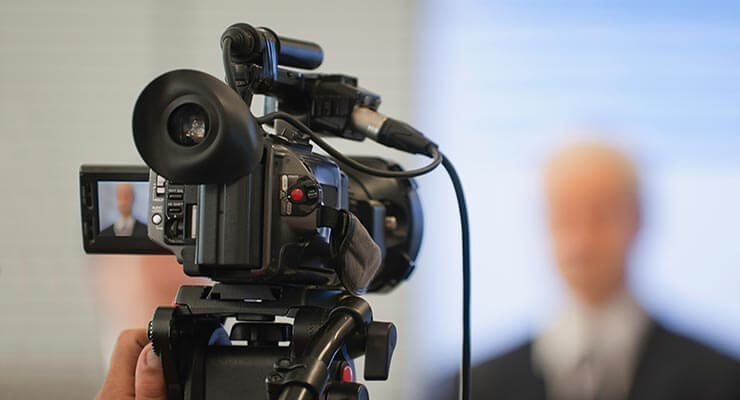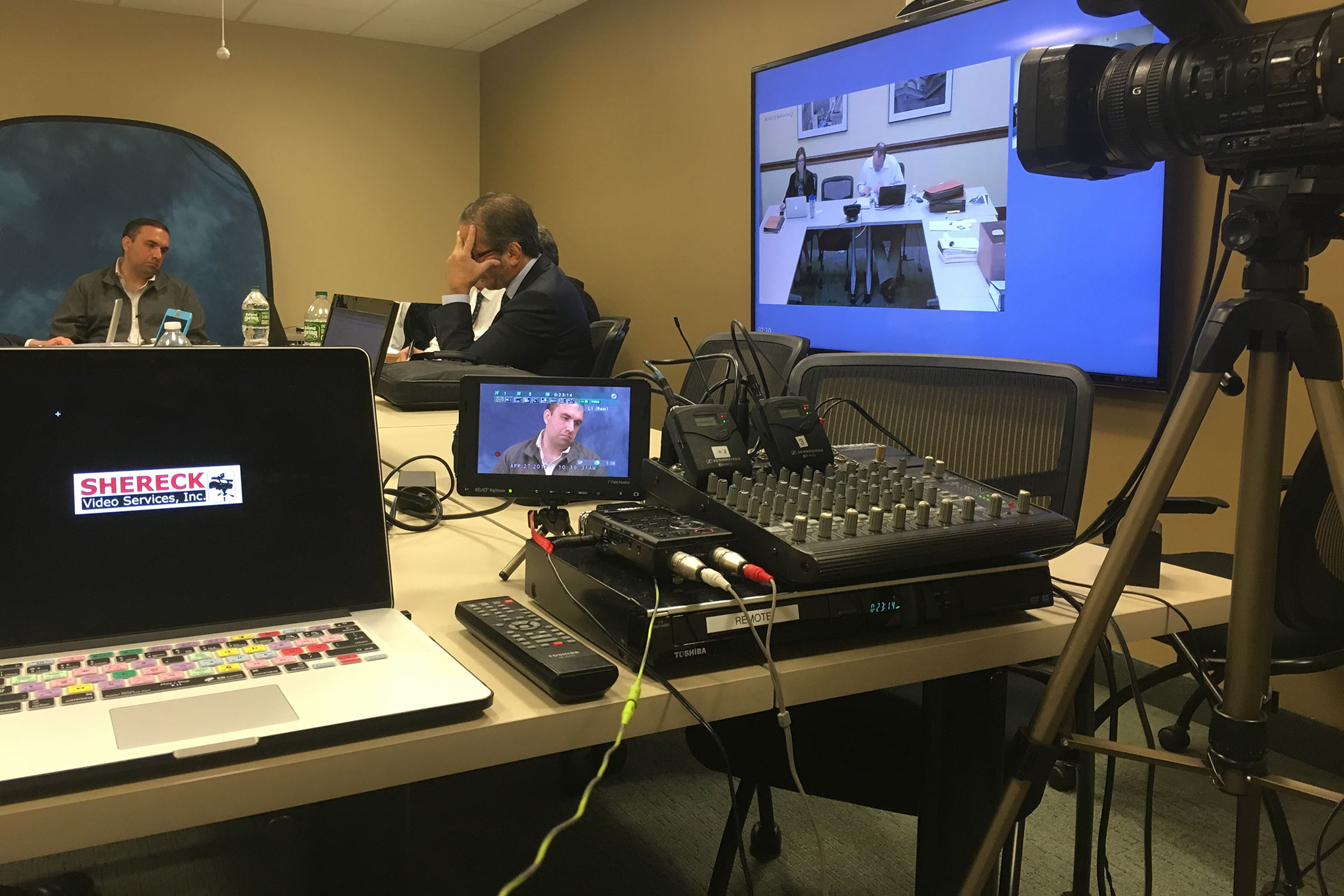The Duty of Legal Videography in Depositions and Trials
Legal videography has arised as an essential device in both depositions and tests, providing a multifaceted method to recording witness testaments. By capturing not only the spoken word but likewise the subtleties of non-verbal interaction, this tool improves the reliability of statements and protects essential evidence for future proceedings. As lawyers increasingly recognize its value, it prompts a deeper examination of how these visual records can affect juror perceptions and test end results. What effects might these advancements hold for the future of lawful method?
Significance of Legal Videography
Lawful videography plays a crucial function in the documentation and discussion of depositions and tests. This specific field incorporates technological skills with lawful understanding to create a dependable document of procedures that can substantially influence instance results. The appearance of legal videography boosts the understanding of witness statement, allowing jurors and courts to observe not only the talked words but additionally the temperament, emotions, and body language of the witnesses.

The importance of lawful videography prolongs beyond the courtroom; it additionally plays a crucial function in preserving proof for future recommendation, whether for charms or further lawful action. Thus, its assimilation into the legal procedure is vital for ensuring a reasonable and precise representation of the truths, inevitably adding to the pursuit of justice.

Refine of Legal Videography
While capturing the subtleties of depositions and tests, the process of legal videography includes numerous crucial steps that make certain top quality, precise recordings. An expert lawful videographer prepares by assessing the case materials and understanding the particular demands of the deposition or test. This prep work includes familiarizing themselves with the participants and the context, which aids in catching essential information.
On the day of the recording, the videographer establishes the essential tools, which typically includes high-definition cameras, microphones, and proper lighting. Ensuring ideal angles and audio top quality is vital, as it straight affects the performance of the recording. The videographer connects with lawyers and participants to establish protocols, guaranteeing that everyone understands the recording process.
During the deposition or test, the videographer diligently videotapes the process, paying close focus to both spoken and non-verbal hints. legal videography. This includes recording the demeanor and reactions of witnesses and attorneys. After the session wraps up, the videographer may modify the video footage for clearness and compliance with lawful requirements, creating a final item that precisely reflects the process for future recommendation and use in legal contexts
Advantages in Depositions
The consolidation of videography in depositions offers countless advantages that enhance the total process of collecting evidence. One primary advantage is the capability to record witness statements with visual and acoustic fidelity, providing a much more accurate depiction of the witness's behavior, tone, and body language. This multidimensional technique allows lawyers and juries to analyze reputation a lot more efficiently than standard written transcripts alone.
In addition, videographed depositions function as an effective device for protecting testament. Ought to a witness come to be not available for test, their recorded deposition can be played in court, making certain that their evidence stays accessible and pertinent. This aspect dramatically decreases the threat of losing important details that could affect instance outcomes.
In addition, using legal videography promotes better prep work for lawyers. Reviewing video footage enables lawful groups to analyze and fine-tune their methods, recognizing strengths and weaknesses in their situations. This primary benefit can bring about more compelling presentations in court.
Finally, videography improves the general professionalism and reliability of the deposition process, instilling self-confidence in customers pertaining to the thoroughness of their lawful depiction. By leveraging modern technology, his explanation lawful professionals can significantly improve the effectiveness of depositions.
Effect on Trials
In numerous trials, the combination of videography can considerably influence the presentation of evidence and the jury's perception. Lawful videography records witness testaments and crucial proof in a vibrant style, allowing jurors to involve with the material on numerous degrees. This visual component enhances the storytelling facet of a test, supplying context and emotional resonance that conventional text-based evidence might do not have.
Additionally, video recordings can act as effective devices for impeachment throughout cross-examination. When discrepancies arise in between a witness's previous statements and their court testimony, video clip proof offers an objective referral that can persuade jurors' opinions. This immediacy and clarity can strengthen the reputation of an event's narrative while at the same time threatening opposing disagreements.
Furthermore, making use of videography can help simplify complicated information, making it extra easily accessible to jurors helpful resources who might have a hard time to grasp complex details offered entirely through spoken statement. By combining visuals with acoustic information, lawful videography can enhance retention and understanding, eventually influencing the court's decision-making process. The influence of videography in trials prolongs past mere appearances; it plays an essential duty in shaping the legal landscape and end results.
Future Trends in Legal Videography
As we look toward the future of legal videography, a number of arising trends guarantee to improve its role within the court. One substantial trend is the combination of fabricated intelligence (AI) in video analysis and editing and enhancing - legal videography. AI can streamline the process of recognizing key moments you can check here in taped depositions, permitting attorneys to rapidly access appropriate web content, thereby enhancing effectiveness in situation prep work
In addition, the surge of virtual reality (VR) and increased fact (AR) modern technologies is anticipated to change how jurors experience evidence. By immersing jurors in a simulated environment, these innovations can supply a much more extensive understanding of intricate circumstances, bring about even more enlightened considerations.

Furthermore, the enhancing demand for remote depositions, accelerated by the COVID-19 pandemic, will likely continue. Lawful videographers will certainly require to adjust to new software and platforms to ensure top quality recordings in virtual settings.
Finally, the growing focus on information safety will certainly require stricter methods for saving and sharing video evidence. As the lawful landscape advances, legal videographers should stay abreast of these patterns to preserve their relevance and performance in the judicial process.

Verdict
In recap, legal videography serves a crucial function in the judicial procedure, improving the stability of depositions and tests. By capturing the subtleties of witness statements, this tool not only maintains vital proof but likewise help in presenting details efficiently to jurors. The relevance of visual paperwork in reviewing trustworthiness and promoting cross-examination can not be overemphasized. As modern technology remains to evolve, legal videography is positioned to more transform its role within the legal landscape.